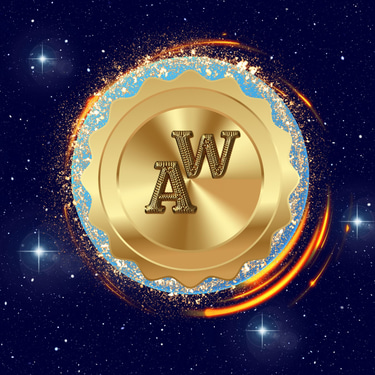Frequently Asked Questions
Where does the Zodiac sign concept is coming from?
Answer: The concept of Zodiac signs originates from ancient civilizations, particularly from the Babylonians and later the Greeks, who developed and refined the system that we use today.
1. Babylonian Origins:
The earliest known references to the Zodiac date back to Babylonian astronomy around 1,000 BCE. The Babylonians divided the sky into twelve sections, each corresponding to a constellation that the Sun passed through over the course of a year. These constellations were later associated with the Zodiac signs we know today.
The Babylonians observed the Sun’s path across the sky, known as the ecliptic, and noted how the Sun passed through specific constellations during different times of the year. This led them to create a calendar based on these observations, which eventually became the foundation of the zodiac.
2. Greek Influence:
The Zodiac as we know it was significantly influenced by the Greeks around 500 BCE. Greek astronomers and philosophers, like Ptolemy, integrated Babylonian astronomical knowledge into their own understanding of the cosmos.
The Greeks associated the twelve zodiac signs with their own mythology and astrological interpretations, adding characteristics and stories to each sign that aligned with their cultural beliefs.
The word "zodiac" itself comes from the Greek word "zodiakos," meaning "circle of animals," reflecting the fact that most of the zodiac signs are represented by animals or mythological creatures.
3. Egyptian Contributions:
The Egyptians also played a role in the development of the Zodiac. They were keen astronomers and integrated their knowledge with Greek ideas during the Hellenistic period. The concept of the decans, a system of dividing the sky into 36 parts, was an Egyptian contribution that influenced astrological thought.
4. Cultural Spread and Adaptation:
As the zodiac system spread through different cultures, it was adapted and refined. For instance, the Romans adopted and modified the Greek Zodiac, and this version spread throughout Europe and eventually became the system we are familiar with today.
In addition to the Western Zodiac, other cultures developed their own zodiac systems, such as the Chinese zodiac, which is based on a twelve-year cycle, each year associated with a different animal.
5. Astronomical Basis:
The Zodiac is based on the Earth's orbit around the Sun and the positions of the constellations along the ecliptic. Each Zodiac sign represents a 30-degree segment of the 360-degree circle of the ecliptic, corresponding to the time when the Sun is "in" that constellation.
Therefore we see that the Zodiac signs come from ancient Babylonian astronomy, were developed further by the Greeks, and have been shaped by various cultures over millennia. They serve as a symbolic system used in astrology to interpret the influences of celestial bodies on human affairs.
Can astrology predict my future?
Answer: Astrology doesn’t predict the future in a deterministic way but offers insight into potential trends, challenges, and opportunities. It highlights influences that may shape your decisions and experiences, helping you navigate life more consciously.
How can astrology help in the area of relationships?
Answer: Astrology can provide valuable insights into relationship dynamics by comparing the Sun, Moon, and rising signs, among other factors, of both partners. It helps understand compatibility, communication styles, and areas that can create conflicts and may require more effort.
Is astrology scientifically proven?
Answer: Astrology is not scientifically proven in the traditional sense we use in XXI century, however, until XVII century astronomy and astrology were considered the same science and throughout more than 5000 years of history astrology insights proved to be meaningful and accurate, viewed as a symbolic language of the cosmos.
What is a birth chart, and why is it important?
Answer: A birth chart is a map of the sky at the exact moment and location of your birth, showing the positions of the planets. It’s important because it provides a detailed blueprint of your personality, life path, and potential challenges, offering deeper insights than your sun sign alone.
Can astrology help with career choices?
Answer: Yes, astrology can guide you in choosing a career that aligns with your natural talents and interests. Your midheaven (MC) sign, along with other planetary placements, can reveal your ideal work environment, strengths, and areas where you’re likely to excel.
How does the Moon influence my emotions?
Answer: The Moon represents your emotional nature and inner world. Its phase and sign at your birth can indicate how you process emotions, what makes you feel secure, and your instinctual reactions to life’s ups and downs. The Moon’s current phase also influences daily moods and energy levels. If you start monitoring how Moon phases and specific Lunar days affect your emotions, communications and other matters in your life your will be surprised with how helpful those insights are.
What are retrogrades, and how do they affect us?
Answer: Retrogrades occur when a planet appears to move backward in its orbit from our perspective on Earth. During retrogrades, the areas of life governed by that planet (like communication for Mercury) can become challenging, prompting us to reflect, reassess, and revisit past decisions. You can see more details on the video from our Current trends page.
Can astrology help me during challenging times?
Answer: Absolutely. Astrology can provide context and understanding during difficult periods, determine when it ends, lessons to be learned and provide guidance on how to navigate challenges.
Is astrology only about predicting things, or can it also help with personal growth?
Answer: Astrology is a powerful tool for personal growth. By understanding your birth chart, you can gain insight into your strengths, weaknesses, and life purpose. It encourages self-awareness and helps you work on personal development in a way that aligns with your true nature.


